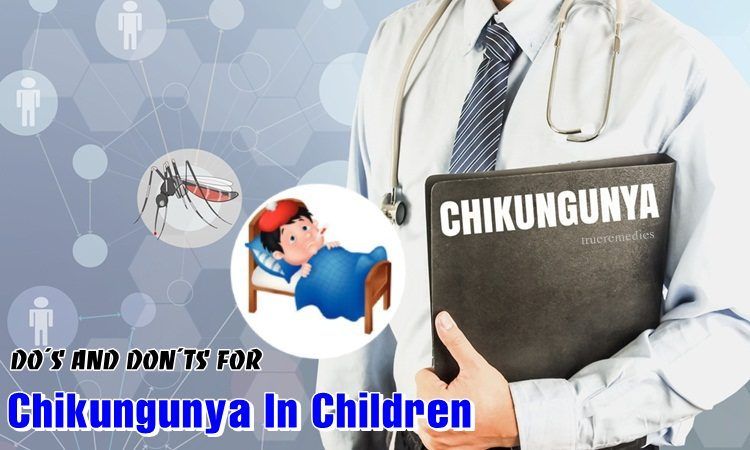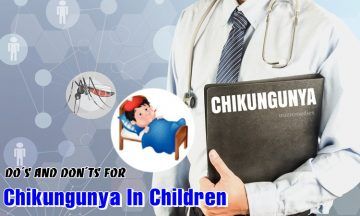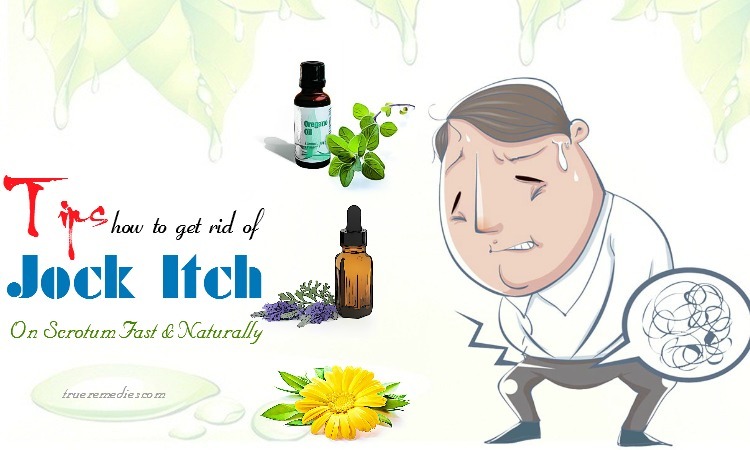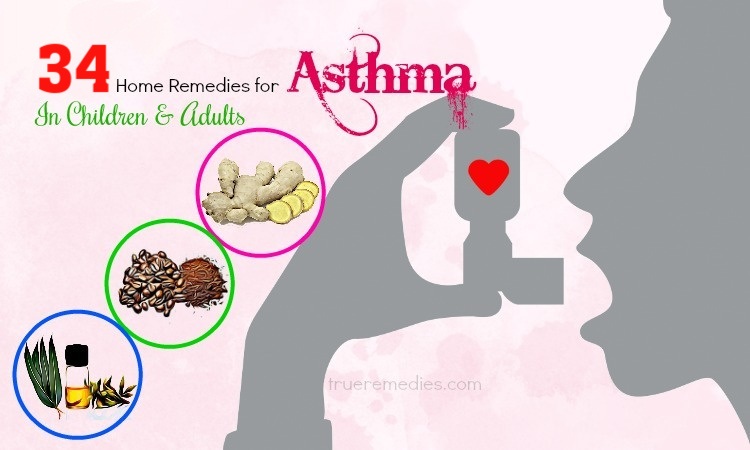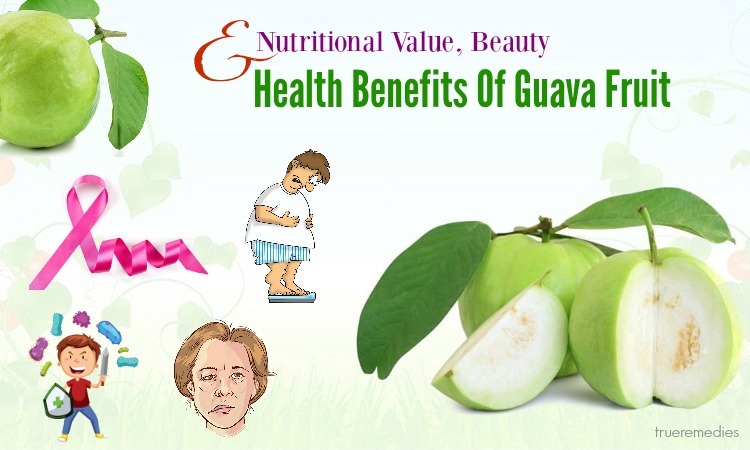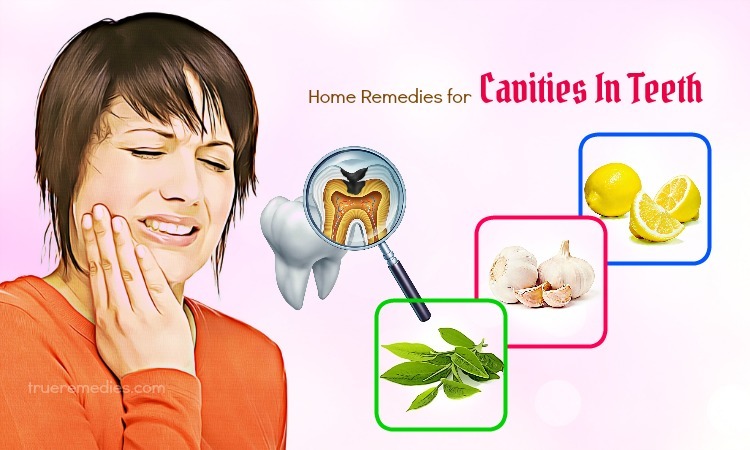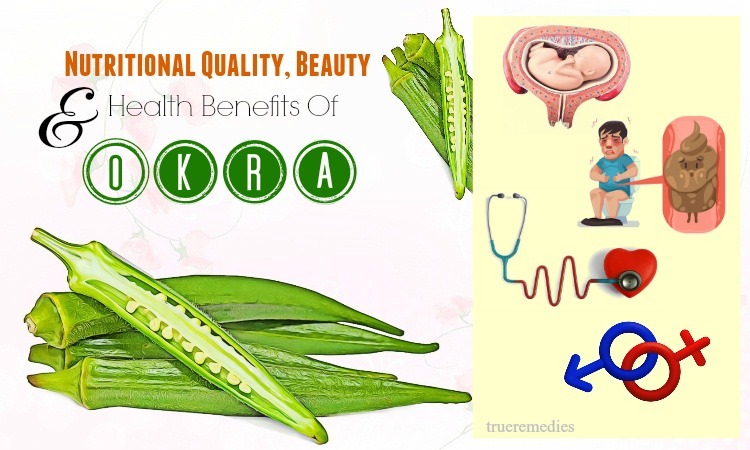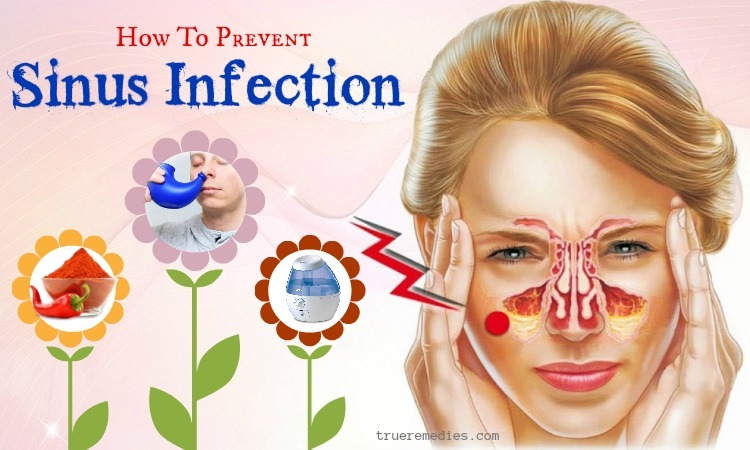Table Of Contents
Chikungunya is a virus which is spread to people by the bite of an infected mosquito. Anyone may be affected by this disease, especially children and older people. Although it is not dangerous, its symptoms may cause death. Therefore, during Chikungunya, patients should pay attention to diet and lifestyle to get better quickly. In our article today on TrueRemedies, we would like to show you 12 do’s and don’ts for chikungunya in children.
12 Do’s And Don’ts For Chikungunya In Children You Should Not Skip
I. What Is Chikungunya?
Chikungunya is a kind of virus which is transmitted by mosquitoes. This virus appeared before 2013 in countries in Africa, Asia, Europe, and the Indian and Pacific Oceans[1].
II. Symptoms
You will see the signs of Chikungunya after 3 to 7 days after children are bitten.
Fever and joint pain are the most common symptoms. Besides, patients may have a headache, muscle pain, nausea, joint swelling, or rash[2] [3].
These symptoms are similar to ones of other illnesses spread by mosquitoes, such as dengue fever or Zika fever. Therefore, you should consult the doctor when your children have these symptoms to determine exactly what disease you are suffering from.
In many cases, people will feel better after maximum a week. However, some patients have joint pain for months.
TrueRemedies Partner Solutions

Need a Help from the Leading Expert Online, Available 24/7?
They’re all here and ready to answer your questions online or by phone. Keep asking questions until you get the answer you need.
Chikungunya is more severe when it affects newborns, older adults (≥65 years), and people with medical conditions such as high blood pressure, diabetes, or heart disease.
III. What To Do?
We haven’t had a vaccine or treatment for Chikungunya, but we can reduce its symptoms and the virus will disappear.
A. Diet
1. Omega 3 Fatty Acids
Omega-3 fatty acids are good for your physical health, especially for heart health. Taking omega-3 fatty acids regularly may reduce cardiovascular disease events in patients with coronary artery disease[4]. As we mentioned above, joint pain is one of the most common symptoms of having Chikungunya virus and it may last for months. Do not worry, omega-3 fatty acids are effective for relieving joint pain. Many studies show that supplementation of omega-3 fatty acids may lower swollen joint count and improve swollen joints[5] [6]. Therefore, when children have Chikungunya virus, they should take omega-3 fatty acids to reduce the pain. Some sources of omega-3 fatty acids are fish, soy, eggs, milk, etc. Moreover, they can take omega-3 fatty acids supplements such as fish oil or some kinds of medicine, but remember to consult a doctor before using.
2. Vitamin C
Vitamin C has antioxidant and anti-viral properties, so it may help relieve fever[7]. Moreover, it boosts the immune system by enhancing various immune cell functions[8], so it helps you feel better more quickly. Therefore, remember to have vitamin C intake everyday by adding sources of vitamin C in daily meals such as citrus fruits (orange, grapefruit), potatoes, tomatoes, spinach, cabbage, etc[9]. Children also can get vitamin C by taking medicine, but you should ask the doctor about it before using.
3. Garlic
Thanks to containing a large amount of vitamin B6, Vitamin C, and minerals such as sulfur, calcium, iron, etc, garlic possesses many health benefits like controlling certain types of cancer, improving heart health, and fighting against many viruses[10]. In addition, garlic has anti-inflammatory effect[10] which helps Chikungunya patients feel better quickly.
4. Ginger
Ginger is effective for reducing inflammations[11] which may cause joint pain when children are affected by chikungunya virus. Furthermore, ginger may relieve headache and nausea – the symptoms of Chikungunya[12] [13].
5. Vitamin E
Vitamin E helps children reduce headache when suffering from Chikungunya virus[14]. Some sources of vitamin E are nuts, seeds, vegetables, etc[15]. Children also can get vitamin C by taking medicine, but you should ask the doctor about it before using.
B. Lifestyle
1. Drink Fluids
Chikungunya virus causes fever which leads to fluid loss and dehydration. Therefore, it is necessary to drink plenty of fluids. You can have fluids from water, juice, or soup. Children under one year old can use an oral rehydration solution such as Pedialyte which you can buy in pharmacies[16]. Make sure that you ask the doctor about the dosage to avoid side effects.
2. Get Plenty Of Rest
Activity may make your body temperature higher, so children should spend more time resting[16].
3. Stay Cool
Children should use light clothes, stay in the room with a cool temperature, and use a sheet or light blanket[16].
IV. What Not To Do?
A. Diet
1. High-protein Foods
Do not let your children eat too many high-protein foods. A study presented in the Experimental Biology meeting in New Orleans concluded that consuming too much protein may lead to dehydration[17]. When the children are during Chikungunya, they should reduce the high-protein foods intake. The foods rich in protein are lean meat, dairy products, soy products, etc[18].
2. Fried Foods
Almost all children like fried foods due to their good taste and always find ways to beg parents to find/make fried food for them. However, we should reduce the amount of fried food in children’s daily meals. Fried foods contain high fat[19] which is very bad for children’ health such as causing obesity[20]. Besides, eating fried food regularly increases the risk of type 2 diabetes and heart disease[21]. In particular, when children are affected by Chikungunya virus, they usually get a fever, and fried foods make the fever worse by dehydrating children. According to registered dietitian Carol Aguirre, too many fried foods may lead to dehydration because they may make you have more salt than daily salt intake recommendation[22].
B. Lifestyle
1. Dress Many Clothes
In some cases, children may feel cold due to fever. You should avoid dressing them in many clothes because it may increase their temperature[23].
2. Use Medicine Without Asking Doctor
Children, especially newborns and infants, are sensitive to the medicine. Therefore, make sure that you consult the doctor before letting them take the medicine to avoid the side effects which are very dangerous for them.
V. Prevention
Prevention is better than treatment. You can lower the risk of Chikungunya virus infection by preventing the body from mosquito bites[24].
- Apply insect repellents, especially before going out. Remember to not apply to eyes, mouth, cuts, or irritated skin. Remember to ask the doctor first and follow the instructions when using insect repellents with children. In case you use sunscreen, put sunscreen and insect repellents second
- Wear long sleeves and long pants
- Avoid any standing water in things to stop mosquitoes from laying eggs in or near water
- Keep the living environment clean to avoid mosquitoes eggs
- Stay in rooms with air conditioning. If not, use screens on windows and doors. Use a mosquito bed net if you stay outside or in a room which does not have the screens
We hope that this article brings to you useful and interesting information about what you should do and what you should avoid when the children have Chikungunya virus. All content provided is for informational & educational purposes. We recommend you consult a healthcare professional to determine which suggestion is suitable for you and avoid the side effects.
If you have any questions or comments about the do’s and don’ts for chikungunya in children, please leave them in the comment box.
In short, please visit the New And Fact page to read more about the habits which are good or bad for your health.
Read more: 36 Tips On How To Treat Bacterial Infection Without Antibiotics. This article was medically reviewed/fact checked by Dr. Millie Lytle ND, MPH.

